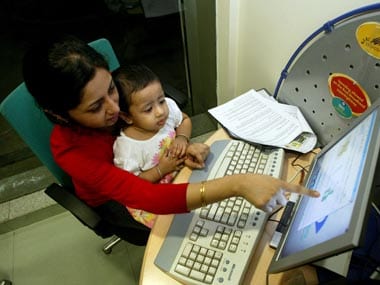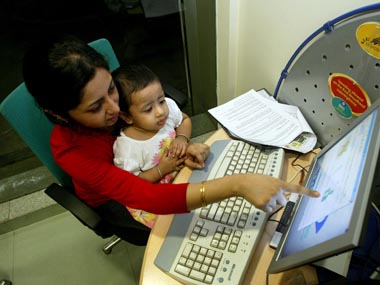It’s not uncommon these days for young children to have their own bank accounts and pick up financial skills early on. Many parents opt to put away fixed deposits in the name of their kids which can be used by them when they grow up. Non-earning spouses may also have bank accounts or deposits given to them by their spouse. Let’s understand how such income is taxed. [caption id=“attachment_350368” align=“alignleft” width=“380”]  Photo courtesy: Reuters[/caption] Kid’s income: Aditya received Rs 50,000 from elders of the family on his first birthday. His parents decided to add another Rs 50,000 and create a fixed deposit with a 5 year tenure in Aditya’s name. Aditya also has a bank account where his father transfers Rs 2,000 every month, hoping to create a secure corpus which can be used at the time of Aditya’s school admissions. Money is invested in Aditya’s name and the parents intended to put it away for him. However, as per the income tax act such income shall be taxable. Income of a minor child is clubbed with the income of the parent whose total income is higher (before including the minor’s income). Clubbing simply means adding to the parent’s income and taxing it as if it is their own income. If the parents are divorced, income is clubbed with the person who is maintaining the child. Clubbing is applied in case of all investments and deposits made in the name of a minor child. Except where the minor has earned an income because of his talent or some special knowledge and experience, such income is not clubbed. In case of a minor who is disabled and earns an income, such income will also not be clubbed. Disability for this purpose has been defined in Section 80U of the income tax act. Aditya’s father can claim an exemption up to Rs 1500 on the income that is clubbed. If clubbed income is, say Rs 800, exemption is limited up to such lesser amount, Rs 800 in this case. He’ll have to report the interest income as income from other sources in his tax return. Let’s see what happens when Aditya turns 18 and becomes a major. Such income will no longer be clubbed. If you have given money to your major child, who may or may not be earning, and if the major child invests that money any income from these investments will not be taxable in your hands but will be taxed in the hands of the major child. There will be no clubbing of income in case of a major child. Spouse’s income: Meet Surbhi, her husband gifted fixed deposits worth Rs 5 lakhs. He also transfers Rs 20,000 to her account monthly so she can meet household and personal expenses. She earned Rs 42,000 as interest on the deposits and an additional Rs 18,000 as interest from the savings bank account in the financial year. This income shall be clubbed in the tax return of Surbhi’s husband and added to income from other sources in his return. Unfortunately, no exemption is allowed where a spouse’s income has been clubbed. If you transfer an asset to your spouse directly or indirectly without receiving adequate consideration (does not include where asset is transferred as part of a divorce settlement) income from such asset will be clubbed with your income. For example, where the husband to reduce his tax liability transfers an asset worth Rs 1,00,000 to his wife for Rs 25,000. In such a case 3/4th of the income from this asset will be taxed in the hands of the husband. If he receives no consideration, in that case the entire income from this asset will be clubbed with the husband’s income. Similarly, if a husband transfers a house property to wife and does not receive adequate consideration, as per the Act, you will still be considered the ‘deemed owner’ and the income from the asset will be clubbed with your income. In this case income will be clubbed under the head income from house property and all the tax benefits shall be available to the husband just as if he were the actual owner. Do remember to include these incomes in your tax return. You must report them in the head in which they belong and pay tax as if it were your own income. Guest column By ClearTax.in which is India’s largest Income Tax e-Filing website for Individuals and Businesses.
No sure what happens with income earned by your kid or spouse? Read this.
Advertisement
End of Article
Written by FP Archives
see more


)
)
)
)
)
)
)
)
)



